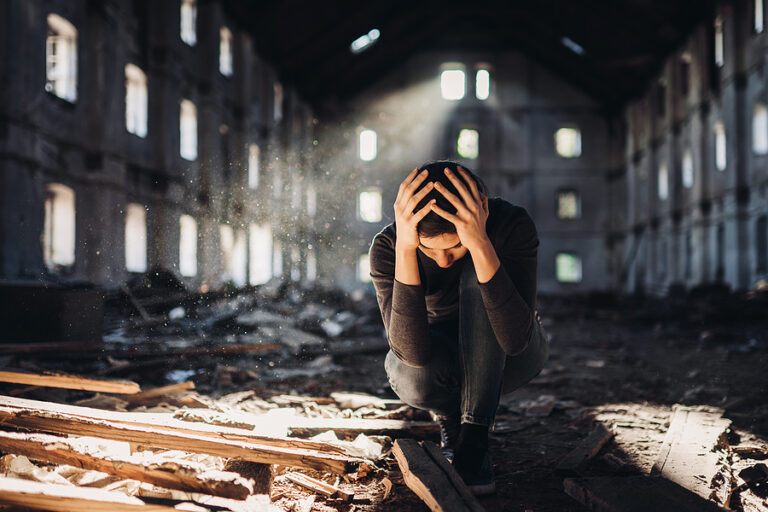The Role of Marriage and Family Therapists (MFTs) in Disaster Response and Recovery

Natural disasters, such as hurricanes, wildfires, and floods, can devastate individuals, families, and entire communities. While physical recovery is often the primary focus in the aftermath of these events, the emotional and psychological toll can be just as severe and long-lasting. This is where Marriage and Family Therapists (MFTs) play a crucial role. MFTs are mental health professionals trained to provide support and guidance to individuals, couples, and families experiencing trauma, stress, and loss. In the context of disaster response and recovery, their work is essential in promoting emotional healing and resilience.
The Role of MFTs in Disaster Response
In the immediate aftermath of a natural disaster, people often experience a range of intense emotions, including fear, grief, and confusion. Marriage and Family Therapists can provide immediate psychological first aid to those impacted, helping to address acute stress reactions and stabilize emotional well-being. By creating safe and supportive spaces, MFTs assist individuals in processing their experiences and feelings, helping to prevent long-term psychological issues such as post-traumatic stress disorder (PTSD).
MFTs are trained to view problems within the context of relationships and systemic dynamics, making them uniquely equipped to support families dealing with crisis and uncertainty. They understand that disasters can disrupt family roles, increase tension, and strain relationships. As a result, they focus on strengthening communication, reinforcing family support systems, and encouraging shared problem-solving. This approach can reduce conflict, promote family cohesion, and build resilience in the face of adversity.
When Hurricane Harvey struck Texas in 2017, thousands of families were displaced, and entire communities were devastated. MFTs in the region immediately stepped in to provide support at emergency shelters, community centers, and temporary housing locations. They conducted group therapy sessions to help families express their emotions and share their experiences. For children who were struggling with fear and confusion, MFTs used play therapy and trauma-focused interventions to help them process the event. By addressing both the individual and family dynamics, MFTs were able to reduce distress and help families start to rebuild their emotional health.
RELATED: Learn more about Therapy Careers and Counseling Careers.
MFTs and Long-Term Recovery
The effects of a natural disaster are not limited to the immediate aftermath. Long-term recovery can take months or even years, with many survivors facing ongoing challenges such as loss of home, financial instability, and grief over loved ones who were injured or killed. MFTs continue to play an important role during this stage by providing ongoing therapeutic support and helping families navigate these complex issues.
During the devastating wildfires that swept through California in 2020 and 2021, many communities were severely affected. The trauma of losing homes, property, and sometimes even family members, left a deep psychological impact. MFTs in California provided essential long-term support through counseling, workshops, and community outreach. They helped families process their grief, cope with the stress of rebuilding, and develop strategies for managing anxiety and trauma symptoms. MFTs also worked with local schools to support children dealing with fear and uncertainty, offering specialized trauma-informed therapies to build resilience.
Special Considerations for MFTs in Disaster Settings
Working in disaster settings presents unique challenges for Marriage and Family Therapists. They often work in non-traditional environments, such as shelters, community centers, or even makeshift clinics set up in the aftermath of a disaster. Flexibility and adaptability are crucial as they navigate chaotic and rapidly changing situations. Additionally, MFTs must be sensitive to cultural, socio-economic, and community dynamics that influence how people experience and cope with trauma.
Effective disaster response requires MFTs to collaborate with other professionals, including emergency responders, social workers, and healthcare providers. This interdisciplinary approach ensures that survivors receive comprehensive support addressing their physical, emotional, and social needs. MFTs contribute valuable insights into family and community dynamics, which can inform broader recovery strategies.
How to Become a Marriage and Family Therapist for Disaster Response
For those interested in pursuing a career as an MFT, especially in the field of disaster response and recovery, there are specific steps to take:
- Earn a Master's Degree in Marriage and Family Therapy: Most states require an accredited master's degree in MFT or a closely related field.
- Obtain Licensure: After completing the degree, aspiring MFTs must complete supervised clinical hours and pass a licensing exam.
- Specialize in Trauma and Crisis Intervention: Taking additional coursework and training in trauma-focused therapy, crisis intervention, and disaster mental health can prepare MFTs for work in high-stress environments.
- Seek Experience in Community-Based Settings: Volunteering or working in community clinics, emergency response settings, or with organizations like the Red Cross can provide valuable experience.
- Stay Informed and Connected: Joining professional organizations such as the American Association for Marriage and Family Therapy (AAMFT) can provide access to specialized training, networking, and resources.
The Critical Role of MFTs in Disaster Recovery
Marriage and Family Therapists bring a unique perspective to disaster response and recovery by focusing on relational dynamics, emotional resilience, and family cohesion. Their ability to provide compassionate, holistic support helps individuals and families navigate the complex emotional landscape that follows a natural disaster. Whether in the immediate aftermath or throughout the long-term recovery process, MFTs are essential to rebuilding not just homes and communities but also the emotional and psychological foundations of those affected.
For those drawn to helping people in times of crisis, a career as an MFT specializing in disaster response can be deeply rewarding, offering the chance to make a profound impact on the lives of families and communities facing unimaginable challenges.



